
Gender equality is a human right. It is also essential for eradicating poverty and improving the lives of future generations. Gender equality is at the heart of all our programming and advocacy work. IPPF pushes for legal and policy reforms which combat female genital mutilation (FGM), early forced marriage and other forms of gender discrimination.
Articles about Gender equality

Sexual and reproductive health and rights are the key to gender equality and sustainable development
Kate Gilmore, UNFPA Deputy Executive Director (Programme) addressed our High Level Side Event “Sexual and Reproductive Health and Rights: The key to gender equality and the empowerment of women and girls” at the 59th Commission on the Status of Women. Upholding human rights for sexual and reproductive health is key to ensuring that all people can be equal and free to make decisions in all spheres of their lives, without discrimination, without violence or coercion, and with the assurance of their dignity upheld. Together the outcomes of the Vienna human rights conference (1993) affirming indivisibility and universality of human rights, the Cairo population and development conference (1994) putting the person at the centre of development and the Beijing women’s conference (1995) affirming that women’s rights are indeed human rights, set a complimentary agenda – defined by the international community and reaffirmed globally time and time again. This is the agenda by which rights in respect of sexual and reproductive health are made normative and the means by which these rights are to be protected universally. It is on this foundation that women and girls, in particular, are reliant if they are to enjoy a life of choices, empowerment and equality, and this invokes the right to health throughout the life course inclusive of the right to make choices freely in marriage, family formation and determination of the number, timing and spacing of children. For such rights to be exercised and enjoyed, people – and women and young people in particular - must be supported with quality access to information, to services and to the means by which to exercise their voluntary choices. SRHR are rights in principle, upheld by international and universal norms and supported indivisibly, by all other human rights norms. However, they are also rights that, in practice, save lives and reduce ill-health: If all pregnant women and their newborns were to receive care at WHO recommended standards, if all women who want to avoid a an unplanned pregnancy had access to modern contraceptives, the life-saving benefits would be substantial. Maternal deaths would drop by 67%. Newborn deaths would drop by 77%. Unintended pregnancies would drop by 70%. Women’s and newborns’ burden of disability related to pregnancy and childbirth would drop by 66%. Transmission of HIV from mothers to newborns would be nearly eliminated—a 93% reduction. The correct thing to do in principle, upholding SRHR is just smart in practice. At its simplest, universal access to sexual and reproductive health is cost effective. With far fewer unintended pregnancies, the costs of improving pregnancy-, birth- and newborn-care, and of preventing mother-to-child transmission of HIV, are lowered. For each dollar spent on contraceptive services, the cost of pregnancy-related care reduces by $1.47. Expanding access to modern methods of contraception, and associated services, so that current rates of unmet need are met, would result in 163,000 fewer infants infected with HIV by 2015, while reducing total HIV treatment costs by $200 million. The UNFPA and the Guttmacher Institute report Adding It Up calculates that to provide essential sexual and reproductive health services to all women and girls aged 15-49 in developing countries would cost a mere $25 per woman per year, which, incidentally, is the cost of a movie ticket with popcorn in New York city. When human rights in sexual and reproductive health are upheld total claims on a country’s health budget are reduced while economic productivity and growth are stimulated; promoting a demographic transition that boosts both economic growth and individual wellbeing. When the number of dependent children in a country decreases, the ratio of productive workers to dependents increases, driving faster economic growth and reducing burdens on families. This window of opportunity is known as a ‘demographic dividend’ and with more young people than ever before this promises both a “youth” and a “gender” dividend, generating broader, long-term benefits for women, young people, their children, partners and families, economies and societies. Preventing maternal deaths and disability also helps protect individuals and families from catastrophic health expenses and loss of income while preventing unintended pregnancy reduces poverty by increasing women’s and girls’ ability to both access education and employment opportunities and participate more fully in social, political and economic life. A study conducted in 2013 in Kenya shows that families experiencing a maternal death spend more on medical care and funeral expenses than all other yearly expenses combined, including food, shelter, and education. The impact of complications of unsafe abortion and the expense of treating these are also substantial for households. Human rights associated with sexual and reproductive health matter for women’s economic, educational, and political empowerment and thus for their countries’ advance too. The autonomy to decide whether, when and with whom to have children, and the opportunity to access quality health services whenever and wherever she needs, is essential to the realization of her other life opportunities and fulfilment. These realities underscore why the promotion and protection of rights pertaining to sexual and reproductive health are instrumental to the achievement of all human rights including the right to education, the right to decent work, the right to food and the right to participation. While sexual and reproductive health are human rights in principle, they are also right the thing to do strategically and thus right in practice. Yet, still many women and girls around the world are denied exercise of their rights. Therefore tackling harmful gender norms is a must, given they are at the core of why so many women and girls are deprived of their rights to sexual and reproductive health. Female genital mutilation, child marriage, rape in marriage, wife inheritance and maltreatment of widows and son preference are all forms of gender based violence and each constitutes a grave impediment to the realization of human rights intrinsic to sexual and reproductive health. At the same time, unless the grave discrimination and inequalities faced by specific population groups are addressed (i.e. those faced by adolescent girls, persons with disabilities, indigenous women and girls, persons living with HIV, displaced persons, the elderly, LGBT, sex workers and others) we will continue to leave millions of people far behind the sustainable development agenda. Nowhere is this clearer than in regards to adolescents and young person. Today’s youth are 1.8 billion strong, forming a quarter of the world’s population. They are shaping social and economic development, challenging social norms and values, and setting the terms of the world’s future. While notable progress has been made under the Millennium Development Goals, many young people – especially adolescent girls – are still denied the investments and opportunities that they require to realize their full potential. Instead, for millions of girl children around the world, puberty – the biological onset of adolescence – brings not only often incomprehensible changes to their bodies but – thanks to perverse gender norms – also new vulnerabilities to human rights abuses, particularly in the arenas of sexuality, marriage and child bearing. The Beijing+20 review has highlighted that in the past 20 years much has been achieved. Increasingly countries are removing discrimination from their laws and adopting laws to promote gender equality and address violence against women and girls. There have been significant gains in girls’ enrolment in primary and – to some extent – in secondary education too. In some regions, women’s participation in the labour force has increased while some regions have made remarkable progress in increasing women’s access to contraception. There have been important gains in women’s representation in national parliaments and significant normative advances have been won in the global agenda on women, peace and security. However, 20 years on from Beijing, we can see what for women amounts to a life-threatening disconnect between agreed normative frameworks and the reality on the ground. Implementation, accountability and engaged must be strengthened. Without strong accountability mechanisms to enable women to hold decision makers answerable for their actions, substantial progress for human rights in sexual and reproductive health is unlikely. To turn this around, commensurate financial resources and political support for key institutions and mechanisms that promote gender equality, and the human rights of women and girls more broadly is essential, including for such as national gender equality mechanisms and national human rights institutions. Ensuring there are mechanisms for tracking and reporting on commitments made to human rights in sexual and reproductive health is also an essential part of building and fortifying accountability. UNFPA is undertaking bold and innovative measures to turn advance human rights. We are supporting countries to address gender and sexual based violence, for example, by working with sister UN agencies to support governments provide access to essential services for survivors and victims of gender based violence. We are enabling South-South cooperation and learning between countries through ground-breaking initiatives like the VIRAVIDA programme in Brazil, which brings together the private sector, government and community organizations to empower, educate and employ marginalized young people who have been sexually violated. By committing resources and action to support women and girls around the world to exercise autonomy over their bodies and fertility, including by enabling access to safe, voluntary family planning, we are ensuring realization of rights pertaining to their education and their labour force participation. Promoting the engagement of men as supportive partners in gender equality, we have established “husbands’ schools” that aim to promote better health for women and children. Implementing our Adolescent Girls Initiative, we are reaching the most marginalized adolescent girls, protecting their rights, particularly by delaying age at marriage and childbearing, by empowering them and by elevating their social status in their communities. Right in principle, smart in practice and plain strategic for sustainable development: the most pressing question cannot be “why should governments invest in human rights for sexual and reproductive health?” but rather “why haven’t they?”
Annual Performance Report 2015
When IPPF refocused efforts with the three Changes Goals – Unite, Deliver and Perform – an ambitious commitment was made to double the number of sexual and reproductive health services provided between 2010 and 2015. We are proud to announce that 175.3 million services were provided in 2015, only 1 per cent below the goal of 176.4 million. This is a remarkable achievement and a result of Member Associations’ unwavering efforts and commitment. More than eight in ten clients who received services from IPPF were poor and vulnerable, while 44 per cent of our services went to young people. In 2015, Member Associations and collaborative partners in 48 countries contributed to 82 legal and policy changes that support or defend sexual and reproductive health and rights. At the regional and global levels, IPPF’s advocacy contributed to 22 policy changes. The highlight of our advocacy achievements was the inclusion of gender equality and women’s empowerment, sexual and reproductive health, and reproductive rights in the 2030 Agenda for Sustainable Development. IPPF continued to invest in learning, business processes and information management systems to drive performance and value for money. We are increasingly using data to guide decision making and to ensure accountability to our clients, donors and partners.
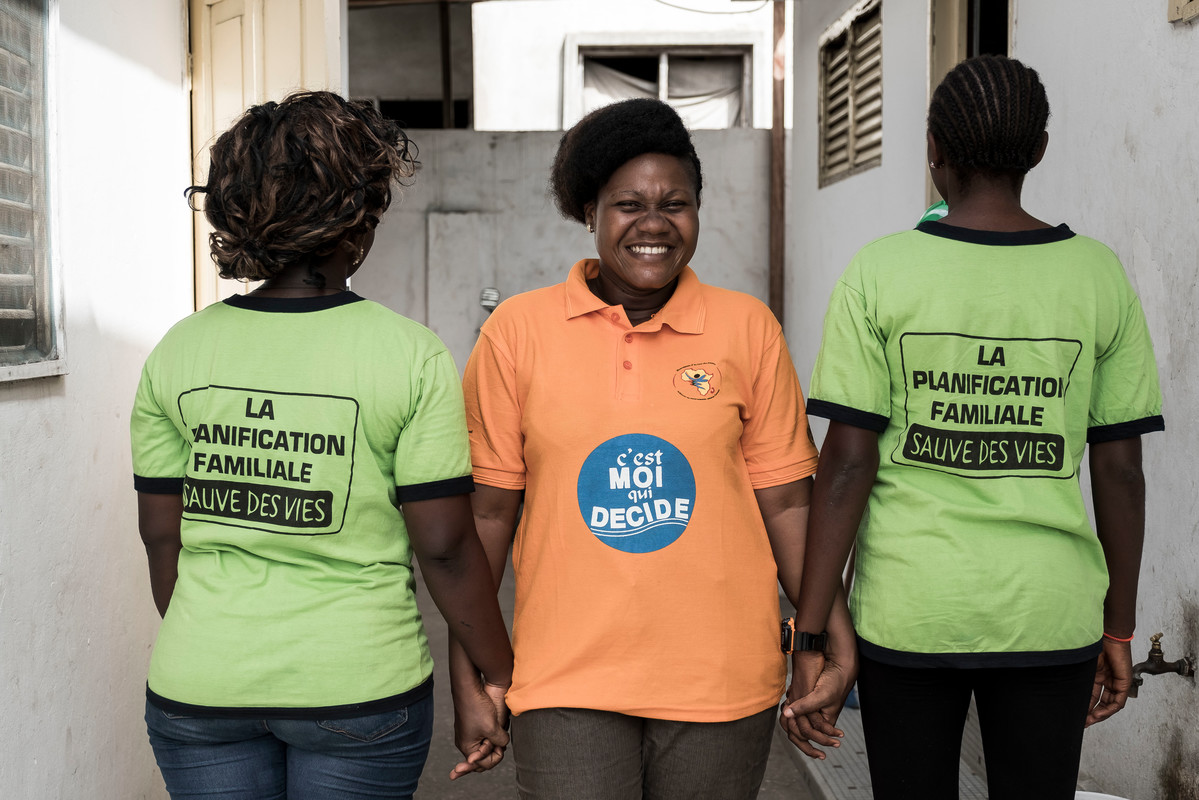
Commission on the Status of Women
The Commission on the Status of Women (CSW) is a functional commission of the United Nations Economic and Social Council (ECOSOC). It is the principal global policy-making body dedicated exclusively to gender equality and advancement of women. Every year, representatives of member states gather at United Nations Headquarters in New York to evaluate progress on gender equality, identify challenges, set global standards and formulate concrete policies to promote gender equality and women's empowerment worldwide. The Commission was established by ECOSOC resolution 11(II) of 21 June 1946 with the aim to prepare recommendations and reports to the Council on promoting women's rights in political, economic, civil, social and educational fields. The Commission also makes recommendations to the Council on urgent problems requiring immediate attention in the field of women's rights. 2014 'Challenges and achievements in the implementation of the Millennium Development Goals for women and girls' agreed conclusions 2013 'Elimination and prevention of all forms of violence against women and girls' statement | agreed conclusions 2012 'Financing for gender equality and the empowerment of women' statement | chair's summary 2011 'The elimination of all forms of discrimination and violence against the girl child' statement | agreed conclusions 2010 '15-year review of the implementation of the Beijing Declaration and Platform for Action (1995) and the outcomes of the 23rd special session of the General Assembly (2000)' statement | agreed conclusions 2009 'Equal participation of women and men in decision-making processes at all levels' statement | agreed conclusions 2008 'Financing for gender equality and the empowerment of women' statement | agreed conclusions
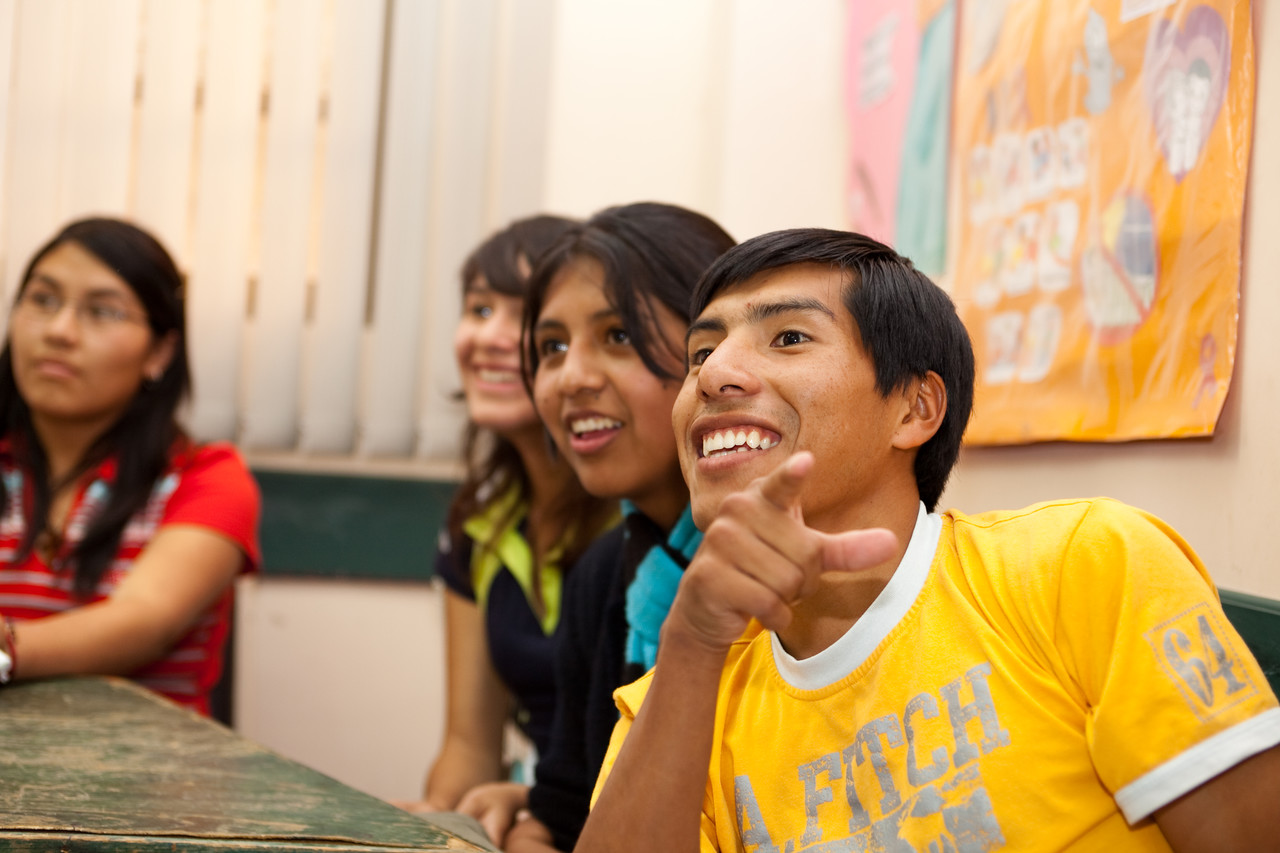
#KnowItOwnIt - your sexual rights matter!
IPPF's 2016 campaign is on strengthening quality comprehensive sexuality education for all young people, globally. Your sexual rights matter. It's time to Know It, Own It!
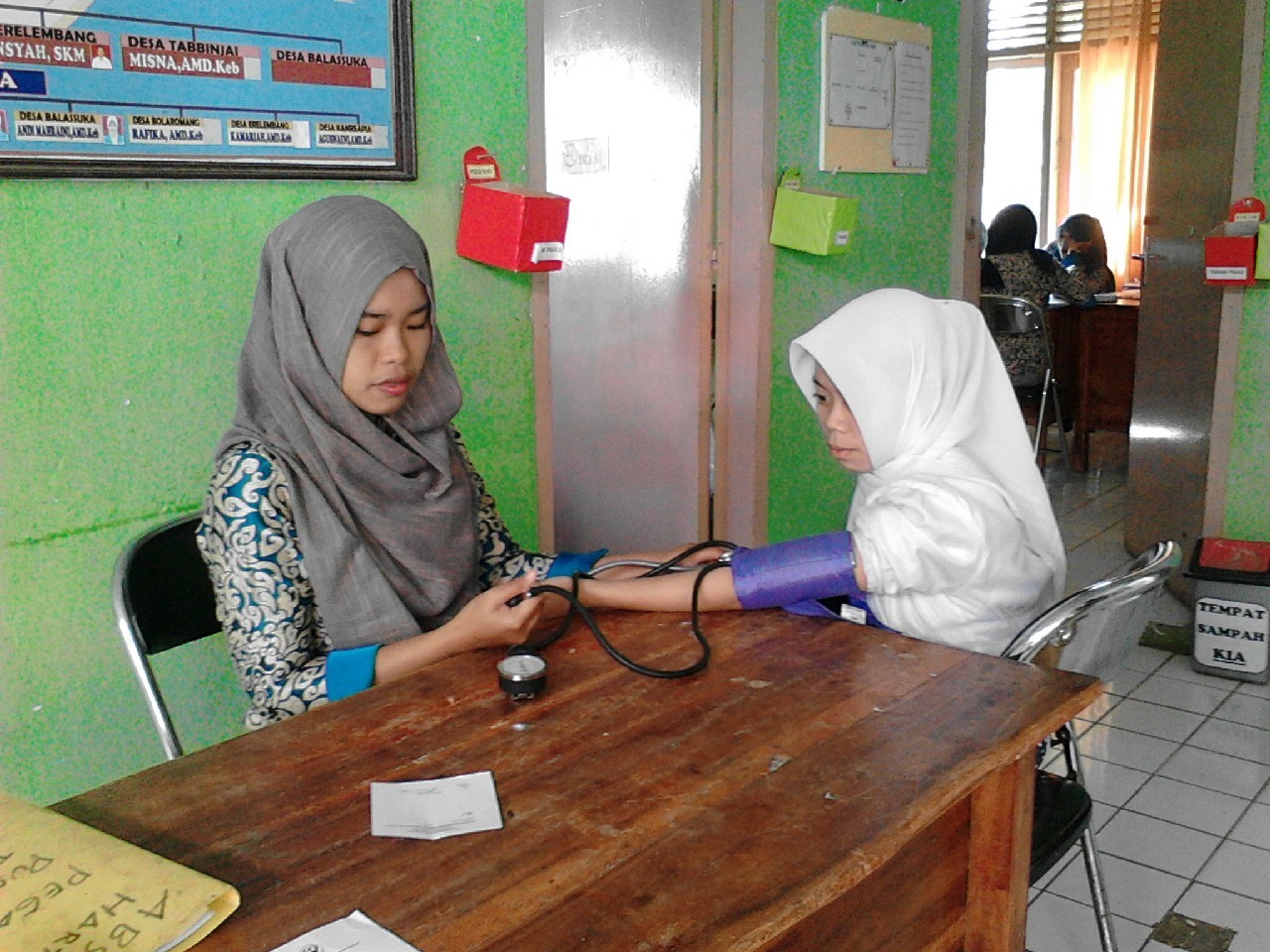
World Health Assembly hears from Ima: “There’s much more to being a midwife than delivering babies”
Ima, 24, a recently qualified midwife from Indonesia, is a panellist in the Global Dialogue for Citizen-led Accountability for Women’s, Children’s and Adolescents’ Health at the World Health Assembly this week. Here Ima talks about the special challenges of working in rural Gowa district in South Sulawesi , Indonesia - having to reach clients on a motorbike, answering schoolchildren’s sex ed questions by text and how there’s much more to being a midwife than delivering babies. My name is Mukrimatunnisa but people call me Ima. After I graduated from high school, I didn’t want to continue studying midwifery. I originally thought that midwives just delivered babies but we do so much more that that - counselling, promotion, education. My cousin encouraged me to stick with it and I’m glad I did. In Gowa district, where I live, there is a high rate of maternal and newborn death. My personal ambition is to help bring down the maternal and newborn death in my district. Everyday I go to work at public health centre of Tamaona. I live with my uncle and his family. I go to pray at 5am, then, after breakfast, I get on the motorcycle I need to go to work. It usually takes me between 15-30 minutes to get to work, but in the rainy season the mud makes conditions so bad it can take a lot longer. At the health centre, I see patients for antenatal care, contraception and everything related to pregnancies and delivery. Every midwife has a two day shift each week when we work from afternoon to night helping with deliveries. Pregnant women don’t usually come with their husbands. They don’t think it is important to go with their wives. But it is! Husbands need to understand about the pregnancy and how to get the wife to health facility. It’s the same with contraception, it is usually the woman to come to the facility. Even for the condoms. It could be that the husband is shy. The women usually ask for their husbands’ permission before they come to the facility to get contraceptives. After every delivery, we tell the mother about contraception. We give priority to women who have many children. The most common contraceptives I prescribe are implants, injections and pills. I was a bit nervous when I gave a woman an implant for the first time, but I had a senior midwife with me and it was fine. It’s all worthwhile when I hear women saying how pleased they are that they can use contraceptives. They say that they have more time for other things. Every year we have to visit all the schools in our area to provide reproductive health education for children aged 13-18. The girls are a bit shy of asking questions so I ask them to write it down on a paper and pass it on to me. The boys on the other hand are not at all shy! Many families understand the importance of contraception so I don’t get any questions from parents. I enjoy working with young people, they have so many interesting questions. This work is so important! It is about the future of the family. It’s about helping children get a good education and it can prevent maternal and newborn deaths. Increasingly I see teenagers who have the confidence to ask about their reproductive health. I even get text messages on my phone asking about menstruation. I make friends with the students – that’s how I found out that some 12 year olds are dating and, of course, they have questions. I provide counseling over the phone when I have time. Some people can’t access our facility due to the horrible road conditions. We reach out to these communities every three months, travelling by motorcycle and 4-wheel drive car. Sometimes women will give birth in a car while driving to the facility because the road conditions are so horrible. As for the future, I want to continue my studies and get a master’s degree in midwifery so that I can learn more about maternal and newborn health and help bring down the mortality rates – that’s my vision.
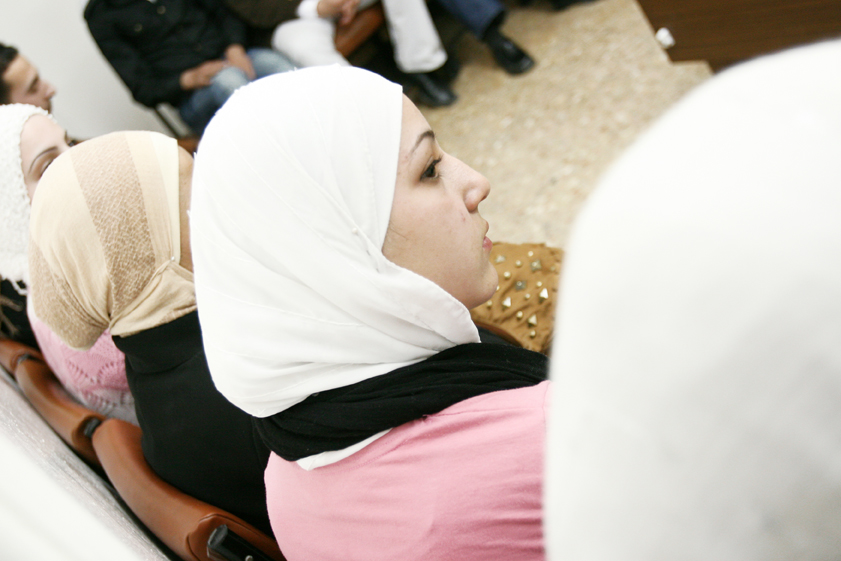
IPPF supports Call to Action for protection from Gender- Based violence in crisis
IPPF is supporting the Call to Action on Protection from Gender-Based Violence (GBV) in Emergencies, which aims to fundamentally transform the way GBV is addressed in humanitarian operations via the collective action of numerous partners, each bringing various strengths and capacities to the table. The commitments were presented during a High Level Panel at the World Humanitarian Summit in Istanbul today. On the Call to Action, Tewodros Melesse, IPPF Director General said: ” We cannot allow gender based violence to go ignored. We are seeing the impact when people reach our humanitarian services. We call for others to follow our lead and deliver a prioritised approach that ensures there is a tailored service for those who affected by gender-based violence. This will ensure that those in crisis will get the support and protection they need so no one is left behind”. Women and girls are disproportionately influenced by humanitarian crises exposed to early marriage, trafficking, rape, forced pregnancies, unattended service delivery during complicated pregnancies and delivery. Women and girls are 14 times more likely to die in disaster settings than men. IPPF tailors its programmes to focus on GBV and women and girls. The Call to Action will strengthen a global standard and prioritization for GBV in crisis settings. IPPF has committed to a range of areas for GBV in crisis settings: IPPF Secretariat-wide standard to drive action and accountability on GBV and gender equality in humanitarian service delivery. Develop a tailored minimal sexuality education programme that is responsive to the needs of people living in crisis settings, recognizing the additional risks of early marriage, and sexual violence All IPPF local Member Associations implement GBV and/or gender equality interventions that are based on assessment and planning processes. IPPF targets to deploy its regional and local GBV experts within 72 hours of a major crisis

IPPF Humanitarian Report
Global comprehensive sexuality education: “too little, too late, too biological” says new report
Sex education across the world is ‘too little, too late and too biological’, according to a new report released today by the world’s leading provider of sexual health services. The International Planned Parenthood Federation (IPPF), which works with partner organisations in 170 countries, is calling for all of the world’s 1.8 billion young people aged between 10 and 24 to get universal access to comprehensive sexuality education (CSE). A new report called: ‘Everyone’s Right to Know: delivering comprehensive sexuality education for all young people’ calls for more investment in, and better CSE for the largest youth population that the world has ever seen. IPPF says it is an issue that needs to be tackled urgently as the number of young people continues to rise. “The starting point, and the absolute minimum requirement, is that CSE must reach all young people – wherever they are,” according to the Director General of IPPF, Tewodros Melesse. “We cannot achieve gender transformative change by focusing only on health outcomes. We must equip young people with information about health as well as positive aspects of sex and sexuality,” he added. The report argues that millions of young people are missing out completely on CSE. It says that CSE delivery is often outdated and non-participatory and that teaching staff are not adequately trained and content focuses exclusively on health outcomes, rather than the recognition of rights. Too often CSE is scientifically inaccurate and solely geared to health outcomes. In particular, it emphasizes potential negative health risks, as opposed to seeing young people as sexual beings and recognizing the positive aspects of sexuality. The report also says that the most vulnerable young people, who often find themselves outside the school system, are excluded. IPPF believes gaps must be filled to ensure that CSE is also provided in non-formal settings outside the classroom, reaching the hardest to reach young people. Vesna Turmakovska works with young people with learning difficulties at IPPF’s Member Association in Macedonia. She said: “Sexuality is part of these young people’s lives; they’re sexual beings and they express their sexuality on a daily basis. Some parents were afraid that the very fact of learning about sexuality would encourage their children to have sexual relations. “We explained that it was about giving skills to their children to make them capable of defending themselves from potential abusers. We also explained that they need skills to become more independent in life, and need to be able to make a distinction between friendship and love.” The report demands three things. It calls on government worldwide to deliver high quality CSE that meets the needs of all young people in and out of schools. Secondly, governments, civil society organizations and health providers must make sure teachers, educational institutions and individuals who deliver CSE in both schools and non-formal settings are trained sufficiently and are confident in delivering sexuality education in a way that is positive and non-judgmental. Finally, educators and civil society should work with communities and parents to build support for CSE as well as a culture that supports choice and respect for young people and their sexual and reproductive health and rights. This report says implementing high quality CSE inside and outside schools is a necessity for governments worldwide, not a political choice. It says that to ignore the education of young people, to restrict their choices, to limit access to life-saving services and to deny their happiness Notes to editors: For more information please contact a member of IPPF’s communications team. Marek Pruszewicz, Director of Communications [email protected]+44(0) 7740 631769
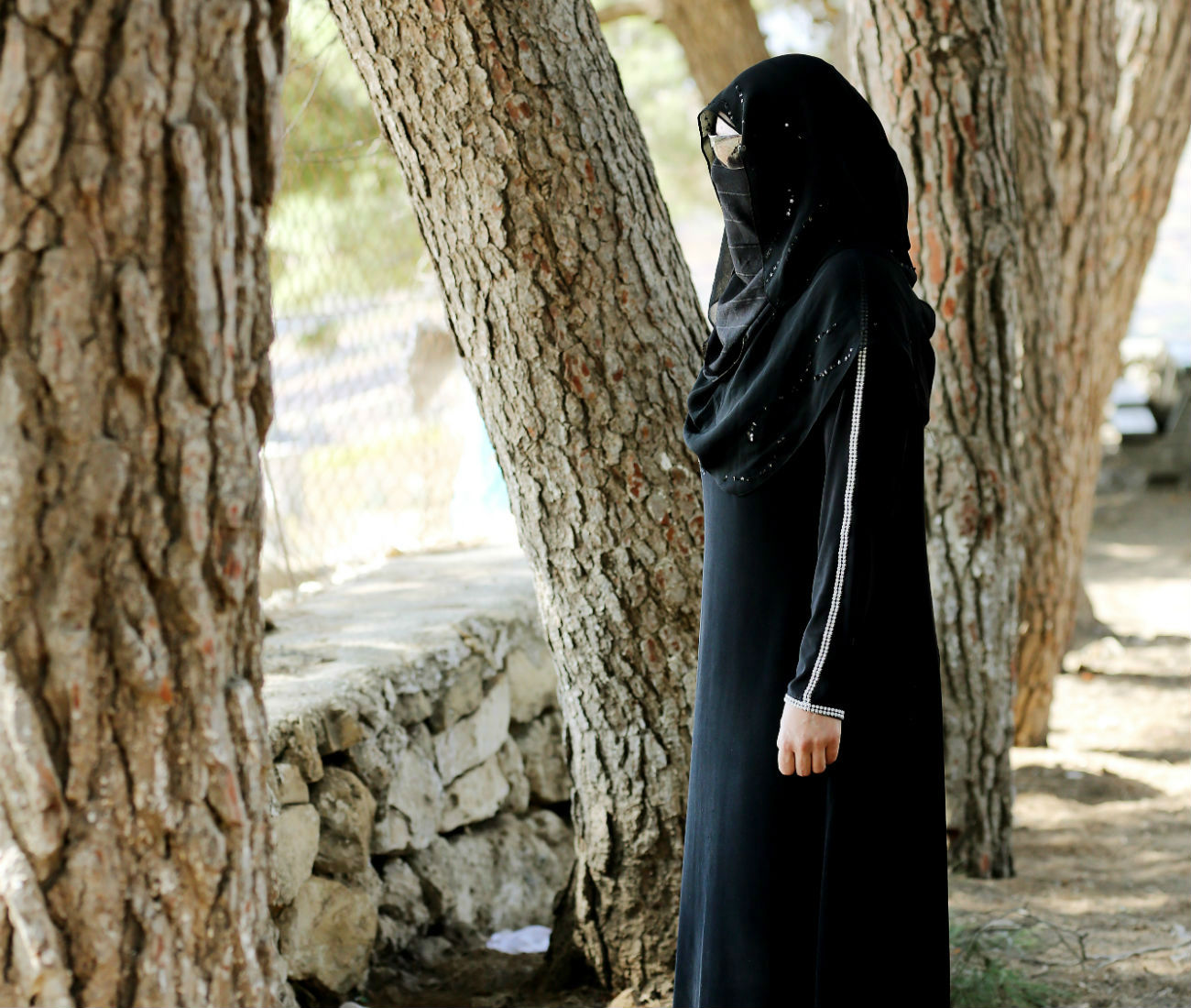
Palestine: talking about sex to help sexual violence victims
In Palestine sexual violence against women, especially within the family, is common. Women's virginity is linked to the honour of their family, and will face threats of death for dishonouring their family. Mariam needed help to get out of a coerced “relationship”, fearing for her life if her relatives find out. “In the beginning my nephew wanted to kiss me. “I resisted. But then he started touching my body. It became a relationship between lovers. To “preserve” virginity, it was always anal sex. “I knew it was wrong. But who I should talk to? If my brother found out he would have beaten me - killed me.” At the Palestinian Family Planning and Protection Association (PFPPA)'s clinics, social workers give awareness sessions on sexual violence in the waiting rooms, hoping to catch the attention of women there for other reasons who are hiding the fact they have been abused. It was this kind of session that proved vital for Mariam. “When my sister was pregnant I went with her to the PFPPA clinic,” she remembers. “The social worker there, Ruba, started speaking about sexual violence. When my sister went in with the doctor, I went to Ruba's office and told her I needed help; I cried.” Mariam kept visiting Ruba, and ended things with her nephew. “What happened to me is not rare. It would have been impossible for me to approach a relative and tell them what was going on; I was too frightened. And nobody would have believed me over a man. “I've found there are other women of my age who've had similar experiences to me but women are frightened to speak about it. “Before, I despised myself. Now I feel powerful. I leave the house, I meet people. I feel I'm responsible for myself, that I have to protect myself, and that I need to help others if they need me. Everyone's telling me 'you've changed, you're stronger'.” Through its association with religious and community leaders, the PFPPA seeks to persuade the public of the importance of talking openly about sexual health and relationships, and dispel the idea that sexuality education for young people goes against the teachings of Islam.
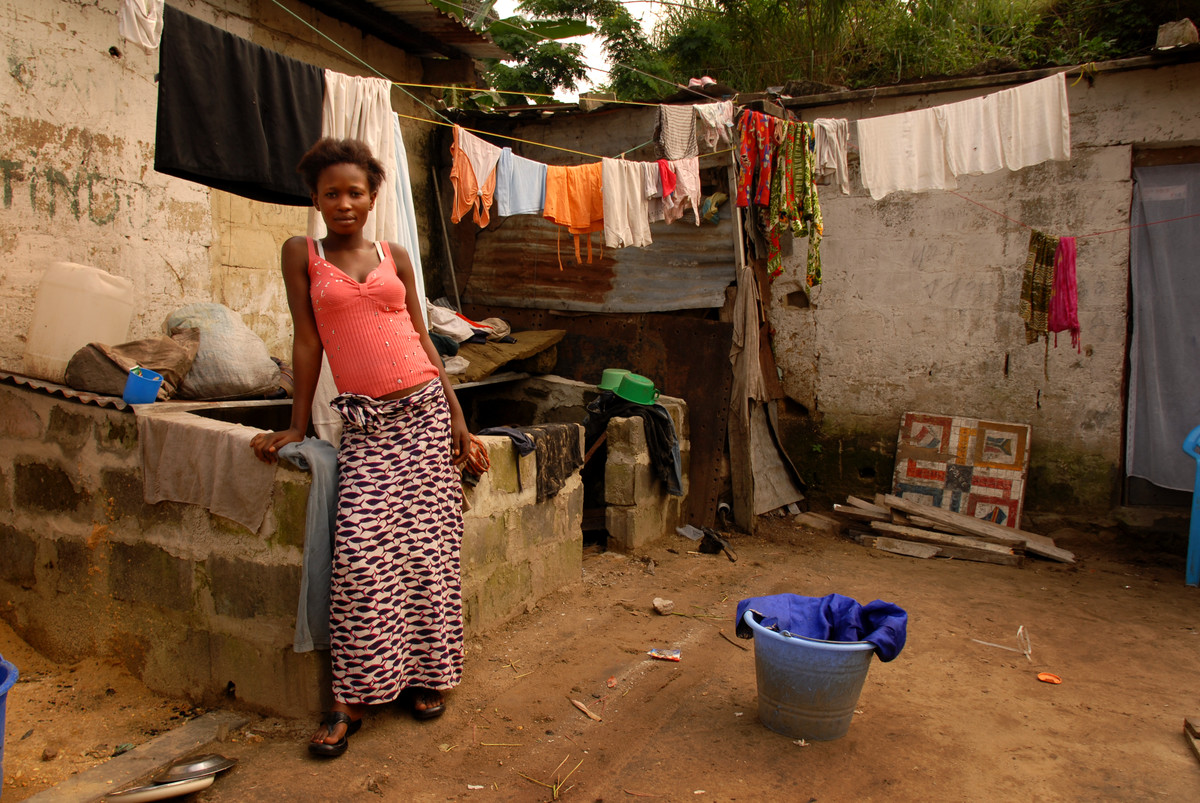
Progress on realising the SRHR promise to African youth at CPD49
Today at the 49th meeting of the United Nations Commission on Population and Development in New York, IPPF’s Director General, Tewodros Melesse spoke to a full room as part of a side-event panel addressing the topic of young people in Africa. The side-event was chaired by South Africa’s Ambassador Kingsley Mamabolo who deftly steered the discussion. The first panellist was UNFPA’s Regional Director for East and Southern Africa, Dr Jullita Onabanjo. She spoke about the importance of the Addis Ababa Declaration on Population and Development for the region. The Declaration was agreed in October 2013 as part of a series of regional reviews feeding into the overall review of progress on the Programme of Action of the International Conference on Population and Development (ICPD). The Declaration, agreed by African Governments, sets out a series of commitments to action, including on sexual and reproductive health, comprehensive sexuality education, data collection and governance: http://icpdbeyond2014.org/pages/view/6-africa Dr Onabanjo called for African governments to share their national experience and learning arising from efforts to implement the Addis Declaration. She looked forward to a platform for this exchange which would also support monitoring of progress on the Declaration and accountability. She recommended a structured and continuous dialogue to take stock and relate monitoring of the Declaration to broader monitoring of the Sustainable Development Goals. The second speaker, Zane Dangor, Special Advisor to the Minister of Social Development, South Africa, started by sharing shocking stories of young women who had suffered or died because they lacked access to safe abortion services. He also told us how Eudy Simelane, a female footballer from South Africa’s national team, was raped and murdered because she was openly lesbian. Zane explained that the Addis Ababa Declaration provides guidance on what states need to do to prevent suffering and deaths like these. South Africa has enacted hate crimes legislation to protect people like Eudy based on domestic legislation, and international agreements, including the Addis Declaration. South Africa has also established an inter-ministerial committee on Population and Development matters to monitor implementation of local, regional and international agreements. Additionally, South Africa has worked to identify gaps in health systems in relation to provision of sexual and reproductive health and rights services that are free from stigmatization and discrimination. Zane described how particular paragraphs in the Addis Declaration provided guidance to South Africa, citing sections about revision of discriminatory laws and policies; ensuring legal systems comply with international human rights regulations and laws; promulgation and enforcement of laws to prevent and punish hate crimes and to protect all people from discrimination and violence; and operationalisation of the right to the highest attainable standard of health. Pointing out that sexual and reproductive health and rights can never be divorced from the pursuit of gender equality and equity, and the full empowerment of women, Zane stressed that the Addis Declaration builds on existing provisions of the African Union to recognise and promote women’s human rights and that it commits governments across Africa to harmonise national legislation with all the relevant international instruments on gender equality and women’s empowerment. Zane concluded with a reminder that the Addis Declaration recognises that we must not choose between rights and development, and that the one cannot be achieved without the other. He supported references to the outcome documents of the regional review conferences – such as the Addis Declaration – in the final resolutions of the Commission for Population and Development, pointing out that words in this context are windows to our consciousness, so we need to embody the spirit of leaving no one behind and ending violence based on discriminatory laws and practices. The third speaker was Dr Simon Miti, Permanent Secretary from the Ministry of National Development Planning in Zambia. Dr Miti explained that a recently conducted demographic study in Zambia was a real eye-opener. It revealed that Zambia currently has the highest ever number of young people in its population: a clear ‘youth bulge’. This realisation led the government to think about how best to realise the demographic dividend through investing in young people’s health, education, rights and employment. Last year the Government of Zambia revised the national youth policy to improve participation of young people, including in the areas of adolescent sexual and reproductive health. The new National Ministry of National Development Planning was also created to help deliver integrated decision-making and implementation across different policy areas affecting young people. Tewodros Melesse, Director General of IPPF, took the floor with optimism, seeing the Addis Declaration as a sign of progress and emphasising that it requires governments to implement the ICPD Programme of Action at national and regional levels. He urged governments to ensure that teachers and the police, the judiciary, private sector and Ministry of Finance all understand the importance of protective legislation and implementation of the Addis Declaration. He called on donors to be partners for implementation, and on Parliamentarians and the media to hold governments to account. Mr Melesse described IPPF’s contribution as a locally owned, globally connected Federation, working for sexual and reproductive health and rights, gender equality and women’s empowerment in over 170 countries. IPPF provides millions of services to young people and delivers comprehensive sexuality education both in and out of school. IPPF believes in empowering young people, and alongside supporting six regional youth networks, IPPF’s governance structure requires that 20% of Board members, at both regional and global levels, are under 25 years old. Noting that about one in five of the young people in the world today live in Africa, Mr Melesse highlighted the potential of the demographic dividend, urging governments to invest in young people’s health, rights and education, including comprehensive sexuality education. He warned that countries with high youth unemployment and poverty could face social instability and urged governments to support youth leadership. Questions from the floor focussed on comprehensive sexuality education, youth leadership and the role of the media, including new media, in providing accurate, evidence-based information for young people about health and rights. The panel concurred on the importance of these issues. The event ended with agreement that the Addis Declaration contained important promises to the young people of Africa and that while progress was being made more needed to be done to turn words into actions on the ground, and to hold governments to account for implementation.
Pagination
- Previous page
- Page 12
- Next page






